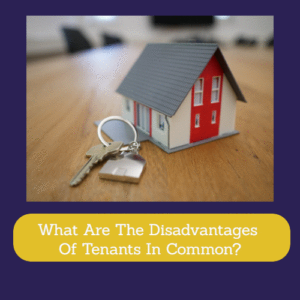 Tenants in common is one of the ways that many people in the UK choose to buy property together. It’s often perceived to be a better solution than being joint tenants, but it’s not perfect. So, what are the disadvantages of tenants in common?
Tenants in common is one of the ways that many people in the UK choose to buy property together. It’s often perceived to be a better solution than being joint tenants, but it’s not perfect. So, what are the disadvantages of tenants in common?
To be connected to a specialist solicitor near to where you live or work, please either call us now on 0845 1391399 or complete a Free Online Enquiry.
Let’s take a look at this popular method of joint property ownership and see why you might or might not want to choose another method:
What is the difference between joint tenants and tenants in common?
“Joint tenants” or “tenants in common” are the two ways that you can own property with another person or other people in most of the UK (Scotland has its own slightly different system).
The easiest way to think about these two very similar-sounding terms is this:
- Joint tenants own it all together – this common choice for couples entering a relationship together means you both own the entire property.
- Tenants in common own individual shares – this popular choice for couples, partners, and even close friends and family members buying together clearly sets out (usually as percentages) who owns how much of a property.
What are the disadvantages of tenants in common?
There are some situations where owning property as tenants in common makes a lot of sense. This is especially true if the people who want to become owners of a property are not married or tied together in a similarly close way.
However, there are also many reasons why being tenants in common might not be the best choice for you:
1) Joint Tenancy Is Simpler
As tenants in common, you can set out precise percentages and even further details of who owns how much of a property. In some situations, this can be a big advantage.
For example, picture a couple who want to buy a home together but have very different incomes. Perhaps one has a better income but one has large savings. In this instance, as tenants in common, they can decide what is fair between them. If the situation changes, as tenants in common, that couple can also alter the details of their split.
This is all very flexible. But it’s not always very simple. As joint tenants though, you instead own the entire property together. You don’t need to work out what a fair percentage is or change it later on. You both own the property together.
As joint tenants, were the relationship to end before one of you passed away, you still have options. You could sell your share to the other person, have them buy you out, or you might both move out and sell the property to gain 50% of the sale price each.
In summary, for all the precise definition and potentially increased fairness that tenants in common offers property ownership, it also carries a certain weight in terms of complexity.
2) The Will Defines What Happens When A Tenant In Common Dies
One of the advantages of tenants in common is usually held to be that you can decide what happens to your share of the property when you pass away.
You can’t do this as a joint tenant. As a joint tenant, the surviving tenant would inherit full ownership of the property because of something called the “Right of Survivorship”.
That said, the fact that tenants in common can choose what happens to their share of the property by laying it out in their will isn’t always a benefit. It’s easy to picture why this might be.
For instance, imagine a happily married couple who are tenants in common. When one of them passes away unexpectedly, their will says that their share of the property should pass to a child from a previous marriage. This child might be a virtual stranger to the surviving partner.
In circumstances like these, a large potential for family disputes is created by being tenants in common. The solution is usually to draw up your will in consultation with a specialist will solicitor who can talk you through these challenges. You should also make sure your tenants in common do the same.
Changing From Joint Tenants To Tenants In Common
As people’s lives and circumstances change, it’s not uncommon for them to want to change the method through which they own property. Most legal experts will tell you that regularly reviewing the way you hold property – or at the very least thinking about it every now and again – is a very good idea.
As a freshly married couple, becoming joint tenants of a property might feel natural and affirming. Later, situations can change. Changing how you own property to reflect that can offer more protection. However, it’s important to understand the advantages and the disadvantages of becoming tenants in common before you make alterations.
Want To Talk Your Situation Over With An Expert Before You Decide?
Let Solicitors Near Me connect you with just the right tenancy solicitor with no cost or obligation.
Get in touch and we’ll find you a friendly, approachable specialist to chat with.
Property Solicitors Near Me
To be connected to a specialist property solicitor near to where you live or work, please either call us now on 0845 1391399 or complete a Free Online Enquiry.
